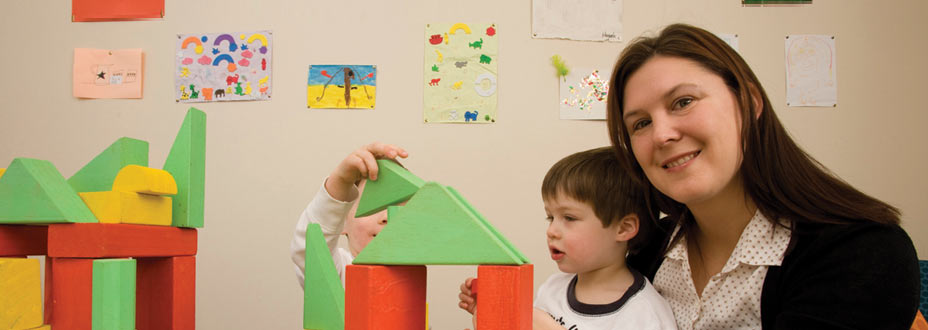
Engaging in games
Teaching young children skills in self-control may provide a better and longer lasting alternative to existing treatments for ADHD (Attention-Deficit/ Hyperactivity Disorder).
Dr Dione Healey: [Parents] rated their children as being significantly less hyperactive, aggressive and inattentive than before.
Dr Dione Healey (Psychology) has developed a programme called ENGAGE (Enhancing Neuro-behavioural Gains with the Aid of Games and Exercise) to help develop self-control in pre-schoolers by using common childhood games that involve core self-control skills.
A trial has been completed with a group of three to four-year-old children rated as more hyperactive than 92 per cent of children their age. Parents played the prescribed games with their children for 30 minutes a day over five weeks. Following this, they rated their children as being significantly less hyperactive, aggressive and inattentive than before. Neuropsychological measures were also improved.
“We found that changes in behaviour were related to changes in neurocognitive functioning,” Healey says. “There were also positive relations between improvements in behaviour and neurocognitive functioning, and the amount of time spent playing the games.”
The children's behaviour was monitored for the following year and parents continued to rate this as significantly better than before the intervention and the same as immediately after ENGAGE. “This indicated that the effects of the intervention were lasting, which was most exciting.” Within the school-aged populations studied, existing treatments for ADHD –medication and behavioural management training – have been found to lack lasting effects. When the treatment stops the symptoms return.
Healey says that the initial success of the ENGAGE programme is very preliminary, but the results indicate that it may help to prevent hyperactivity in the pre-school years from developing into ADHD.